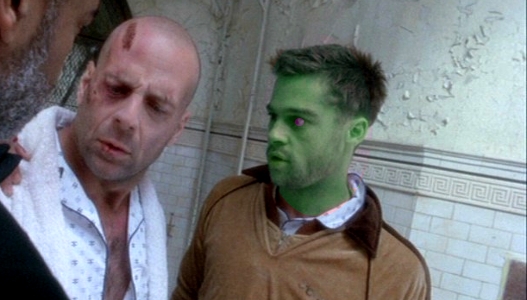Watch Out for the Fairies Among Us! August 13, 2014
Author: Beach Combing | in : Modern , trackbackIn the long struggle to get a handle on fairies there have been claims that ‘the good people’ were simply a human race, kept apart from the rest of us, in the bogs and the mountains of the west and north of Europe: Buchan, Jenner, MacRitchie and many, many others made this argument and it was particularly voguish in the 1890s. What has not often been noted is that a modified version of this claim existed in tradition itself. Yes, there are several references in British and Irish fairylore to adult changelings, who were fairies who had replaced stolen adult children: but these ‘changelings’, typically disabled in some way, rarely had heirs. However, there are also – and this is what gets ignored – bolder claims that entire families or even communities were part fairy. Beach has suggested before that there is the implication that the Irish Ranties were a fairy tribe. But, there are some other examples. In the Gaelic world and in the Northern Isles there are those families who have, the old stories claim, bred with fairy seals (the selkies) and have mermaid DNA. (There is a suprisingly watchable film on this theme).
The most interesting cases are perhaps from Wales. At the beginning of the nineteenth century (1816), the North Walian writer William Williams described in his Observations a people called the Pellings, a nickname for a number of families with fairy blood in the Snowdon mountains. The story is a convuluted one but the Pellings all traced their genealogy to a Welsh lake-maid named Penelope who was caught by a fisherman and married him and bore him children before escaping back to her own world, leaving her DNA behind her. Williams goes on to say that there are a ‘opulent and respectable people’ known to him who are Pellings and then gives one of Beach’s favourite lines in nineteenth-century fairy literature: ‘the best blood in my own veins is this Fairy’s.’
Any other fairy people among us? drbeachcombing AT yahoo DOT com
That fine and generally level-headed Welsh-folklorist John Rhŷs gave some other instances of Welsh fairy families and concluded that all these families were, originally, outsiders: folk from Scotland or England who had come to settle in rural Welsh-speaking Wales and who had been tarred as ‘elves’. But that spoils the whole thing. This blogger is going to pretend that he never read Rhŷs and is going to offer, instead, to find anyone’s fairy ancestry for the right price. Saudis, folk from Martha’s Vinyard, friends of President Putin… No discrimnation. We just ask that our customers have money and we’ll get you a fairy ancestor dragged from the lake or bower of your choice.
17 August 2014: Invisible writes in with the most extraordinary confession. Apparently she once stepped out with a young man of selkie descent. As Invisible wisely notes: ‘I didn’t take him seriously, of course. Nor did I marry him. Who wants to worry about a spouse slipping on his skin and going back to the North Sea every time you have a tiff?’ She has a point, but imagine the kids…
27 Sept 2014: Bast writes ‘I’d like to also point out the movie “Ondine”. In it, Syracuse (Colin Farrell) finds a young woman in his fishing nets. They come to believe she’s a Selkie. One is never quite sure if she IS, or isn’t… I like it, very much.’ Thanks Bast!
28 Feb 2018: Val writes in ‘I was struck by the recent news about Cheddar Man‘s DNA-based reconstruction, thinking immediately of MacRitchie and euhemerism. Do you think this will inspire a second look at MacRitchie’s ideas? Also, about 10 years ago it was discovered that Cheddar Man’s descendants still live in Somerset…this, of course, reminded me of your blog post about the “Fairies Among Us”. Finally, I thought this blog post put the recent Cheddar Man findings in an interesting context. The post’s overall emphasis is on the political implications of the DNA analysis given the current inflamed political atmosphere in Britain, but it’s got a nice collection of quotes re:the notion of of dark-skinned, curly-haired indigenous Brits, starting with Agricola (! I had no idea) and ending (alas) with Murray.’



